- HOME
- Climate Change, Public-Private Partnerships, and Social Equity: Lessons from Bangladesh
Climate Change, Public-Private Partnerships, and Social Equity: Lessons from Bangladesh
Friday, March 1, 2024
We have created 6 videos from this symposium, based on the five sections into which it was split. Additionally, there is a 16 minute compilation of highlights. They are all available by clicking on the playlist in the YouTube video screen below. The playlist is very hard to see! You will find it along the top of the screen just to the right of the title of the forum. It looks like this ≡.
Click on the ≡ button. That will open a drop down menu. You can then scroll down the menu and choose individual videos to play.
 ClassACT HR73’s Benazir Bhutto Leadership Program, along with Weatherhead Center for International Affairs (WCFIA) and the Salata Institute, both at Harvard, hosted a daylong in person Symposium focused on mitigating climate change and its concomitant social inequities through public-private partnerships. This day-long symposium was ClassACT’s third with Weatherhead and its first with Salata. It was a bracing, provocative and thoroughly engaging day exploring the nexus of climate change, public-private partnerships and social equity. Inspired by the work of our current Benazir Bhutto Leadership Program Fellow Nazmul Haque and calling on the expertise and humanity of a group of passionate scholars and practitioners, the symposium gave us cautionary tales, causes for optimism, sobering warnings and new ways to think about the future for our planet and its people.
ClassACT HR73’s Benazir Bhutto Leadership Program, along with Weatherhead Center for International Affairs (WCFIA) and the Salata Institute, both at Harvard, hosted a daylong in person Symposium focused on mitigating climate change and its concomitant social inequities through public-private partnerships. This day-long symposium was ClassACT’s third with Weatherhead and its first with Salata. It was a bracing, provocative and thoroughly engaging day exploring the nexus of climate change, public-private partnerships and social equity. Inspired by the work of our current Benazir Bhutto Leadership Program Fellow Nazmul Haque and calling on the expertise and humanity of a group of passionate scholars and practitioners, the symposium gave us cautionary tales, causes for optimism, sobering warnings and new ways to think about the future for our planet and its people.
CLICK FOR A COMPLETE AGENDA OF THE DAY
PANELISTS (IN ORDER OF APPEARANCE)
AMBASSADOR PETER GALBRAITH AB'73
Senior Diplomatic Fellow, Center for Arms Control and Non-Proliferation
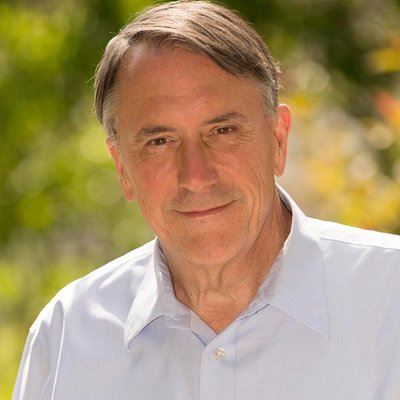 Ambassador Peter W. Galbraith is an author, academic, commentator, politician, policy advisor, and former United States diplomat. From 1993 to 1998, he served as the first U.S. Ambassador to Croatia, where he was co-mediator of the 1995 Erdut Agreement that ended the Croatian War of Independence. He was a cabinet member in East Timor’s first transitional government, successfully negotiating the Timor Sea Treaty. In 2009, Ambassador Galbraith was an Assistant Secretary General of the United Nations serving as Deputy Special Representative for Afghanistan. Ambassador Galbraith served two terms as a Vermont State Senator from Windham County from 2011 to 2015, and was a candidate for Governor of Vermont in 2016. He is the author of two critically acclaimed books on the Iraq War, including the bestselling The End of Iraq: How American Incompetence Created a War Without End. Ambassador Galbraith argues that Iraq has broken up into three parts, allowing for Kurdistan’s independence. In the 1980s, Galbraith uncovered the beginnings of the Anfal campaign against the Iraqi Kurds and, in 1988, documented the use of chemical weapons, leading the US Senate to pass comprehensive sanctions legislation (“The Prevention of Genocide Act of 1988”) authored by Galbraith. He was in Kurdistan during the 1991 uprising and his reports–including video footage of the uprising’s collapse – contributed to the US decision to create a safe area. Beginning in 2003, Ambassador .Galbraith was an informal advisor to the Kurdistan Regional Government in northern Iraq, supporting the Kurdistan delegation in the drafting process of the 2005 Iraqi Constitution. He is on the Board of Directors of the Center for Arms Control and Non-Proliferation, the research arm of the Council for a Livable World.
Ambassador Peter W. Galbraith is an author, academic, commentator, politician, policy advisor, and former United States diplomat. From 1993 to 1998, he served as the first U.S. Ambassador to Croatia, where he was co-mediator of the 1995 Erdut Agreement that ended the Croatian War of Independence. He was a cabinet member in East Timor’s first transitional government, successfully negotiating the Timor Sea Treaty. In 2009, Ambassador Galbraith was an Assistant Secretary General of the United Nations serving as Deputy Special Representative for Afghanistan. Ambassador Galbraith served two terms as a Vermont State Senator from Windham County from 2011 to 2015, and was a candidate for Governor of Vermont in 2016. He is the author of two critically acclaimed books on the Iraq War, including the bestselling The End of Iraq: How American Incompetence Created a War Without End. Ambassador Galbraith argues that Iraq has broken up into three parts, allowing for Kurdistan’s independence. In the 1980s, Galbraith uncovered the beginnings of the Anfal campaign against the Iraqi Kurds and, in 1988, documented the use of chemical weapons, leading the US Senate to pass comprehensive sanctions legislation (“The Prevention of Genocide Act of 1988”) authored by Galbraith. He was in Kurdistan during the 1991 uprising and his reports–including video footage of the uprising’s collapse – contributed to the US decision to create a safe area. Beginning in 2003, Ambassador .Galbraith was an informal advisor to the Kurdistan Regional Government in northern Iraq, supporting the Kurdistan delegation in the drafting process of the 2005 Iraqi Constitution. He is on the Board of Directors of the Center for Arms Control and Non-Proliferation, the research arm of the Council for a Livable World.
Ambassador Galbraith was an assistant professor of International Relations and Economics at Windham College in Putney, Vermont, from 1975 to 1978. Later, he was Professor of National Security Strategy at the National War College in 1999 and between 2001 and 2003. In addition to his books, Ambassador Galbraith has written extensively for a range of publications including The New York Review of Books, The New York Times, The Washington Post, and the Guardian.
Ambassador Galbraith earned a B.A. degree from Harvard College, an M.A. from Oxford University, and a J.D. from Georgetown University Law Center.
MARION DRY AB'73
Chair, ClassACT HR73
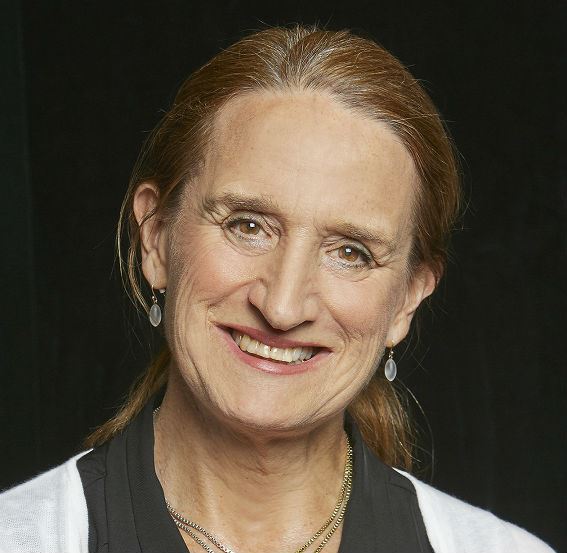 Marion Dry ’73, Chair and Founder of ClassACT HR73, is a concert/opera contralto who has sung with major opera companies and orchestras in the United States and Europe. She is faculty emerita of Wellesley College where she served as Senior Music Faculty in Voice, Chair of the Music Department, and Director of the Music Performance Program. In addition to her role as ClassACT Co-Chair, she serves as the executive producer of the ClassACT Forum series, and as the Director of the Benazir Bhutto Leadership Program.
Marion Dry ’73, Chair and Founder of ClassACT HR73, is a concert/opera contralto who has sung with major opera companies and orchestras in the United States and Europe. She is faculty emerita of Wellesley College where she served as Senior Music Faculty in Voice, Chair of the Music Department, and Director of the Music Performance Program. In addition to her role as ClassACT Co-Chair, she serves as the executive producer of the ClassACT Forum series, and as the Director of the Benazir Bhutto Leadership Program.
DUSTIN TINGLEY
Professor of Government,
Deputy Vice Provost, Advanced Learning, Harvard University
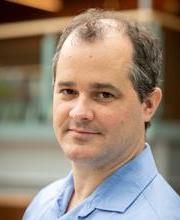 Dustin Tingley is Professor of Government in the Government Department at Harvard University, where he has extensive experience improving teaching and learning. He co-founded ABLConnect, initiated and organized the Harvard Government Department annual poster session, and has organized interdisciplinary conferences on causal mechanisms, active learning, and negotiation in international relations.
Dustin Tingley is Professor of Government in the Government Department at Harvard University, where he has extensive experience improving teaching and learning. He co-founded ABLConnect, initiated and organized the Harvard Government Department annual poster session, and has organized interdisciplinary conferences on causal mechanisms, active learning, and negotiation in international relations.
As Deputy Vice Provost, Professor Tingley launches and oversees initiatives to improve teaching at and by Harvard. He serves as faculty director for both the VPAL Research Group and the Harvard Initiative on Learning and Teaching (HILT).
Professor Tingley’s research interests include international relations, international political economy, statistical methodology, and experimental approaches to political science. His book on American foreign policy, Sailing the Water's Edge, was published in fall 2015, and was awarded the Gladys M. Kammerer Award for the best book published in the field of U.S. national policy. Recent projects include attitudes towards global climate technologies and policies, and the intersection of causal inference and machine learning methods for the social sciences.
Professor Tingley received his B.A. in political science from the University of Rochester magna cum laude with a minor in mathematics, and his PhD in politics from Princeton University.
NAZMUL HAQUE
Fellow, Benazir Bhutto Leadership Program, HKS
 Nazmul Haque has over 20-year experience in structuring and financing infrastructure, renewable energy, and PPP projects in Bangladesh. As the Chief Investment Officer of IDCOL, the largest development financial institution of Bangladesh, he managed a loan portfolio of USD$1+ billion, played an important role in negotiating sovereign debts and supported government on various policy matters.
Nazmul Haque has over 20-year experience in structuring and financing infrastructure, renewable energy, and PPP projects in Bangladesh. As the Chief Investment Officer of IDCOL, the largest development financial institution of Bangladesh, he managed a loan portfolio of USD$1+ billion, played an important role in negotiating sovereign debts and supported government on various policy matters.
In addition to conventional infrastructure projects, Mr. Haque played a lead role in designing and implementing several ‘Access to Energy’ programs in the country that provided clean energy, water, and cooking solutions to millions of rural people and reduced indoor air pollution and respiratory diseases among women and children. In recent years, he worked on promoting energy efficiency across multiple sectors and mobilized US$ 500m+ to support industries and buildings in adopting clean technologies and reducing their CO2 footprints.
Mr. Haque is an international coach on project and climate finance and has consultancy experiences in several developing countries of Asia and Africa. He delivered speeches and presented papers at many seminars/conferences across Asia, Europe, Africa, and North America.
Mr. Haque is an Edward S. Mason Fellow in Public Policy and Management and an MCMPA candidate at the John F. Kennedy School of Government, Harvard University. A Summa Cum Laude in his class, Mr. Haque also has an MBA from North South University, Bangladesh.
He loves traveling, cooking, pottery-making and is a proud father of two beautiful children – Zayed and Zubi.
LEIGH HAFREY AB'73
Senior Lecturer, Communication and Ethics,
MIT Sloan School of Management
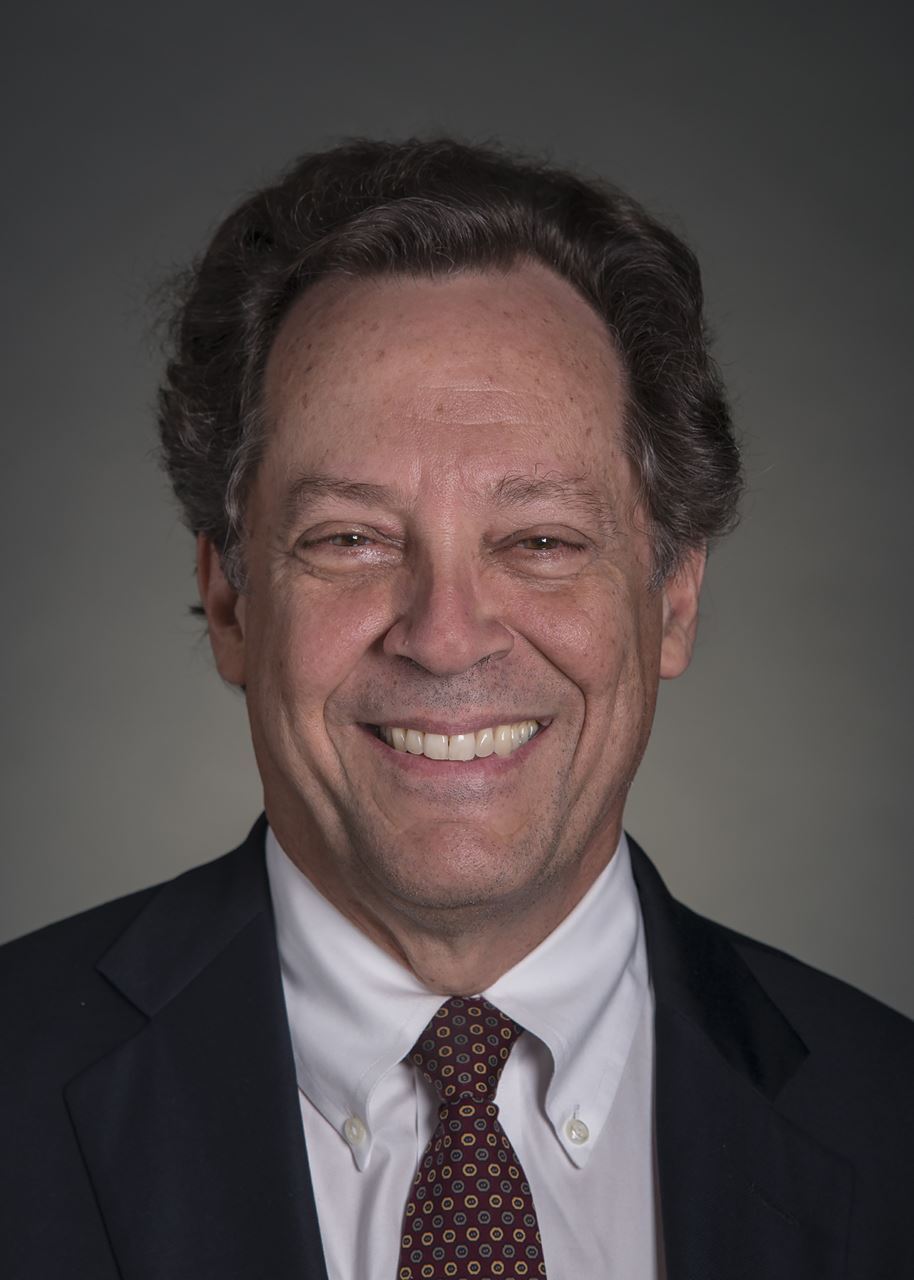 Leigh Hafrey is a Senior Lecturer at the MIT Sloan School of Management.Since 1991, Hafrey has worked in professional ethics, with a focus on ethical leadership, teaching courses at Harvard Business School and MIT Sloan, and consulting with professional practitioners in the United States and abroad. At MIT Sloan, he teaches in the MBA program and Leaders for Global Operations, for which he moderates a mandatory two-year leadership course. He has also taught in MIT’s Industrial Liaison, MIT-China Management Education, Master of Finance, Management of Technology, Nanyang Fellows, Sloan Fellows in Innovation and Global Leadership, Supply Chain Management, and System Design and Management programs.Since 1996, Hafrey has moderated the Aspen Institute’s Seminar in Leadership, Values, and the Good Society and other seminars sponsored by the Institute in the U.S. and abroad. From 1993 to 2010, together with his wife, Sandra Naddaff, Hafrey was a co-Master of Mather House, one of the 12 residential complexes in Harvard College. The Mather community brings together 400 undergraduates; 100 faculty, administrative, and alumni fellows; and dozens of advisory and other staff.A former staff editor at The New York Times Book Review, Hafrey has published reporting, essays, reviews, interviews, and translations in The New York Times and other American and European periodicals. He serves on the editorial advisory board of Philosophy of Management (U.K.) and the Journal of Business Ethics Education (U.S.). His publications on business and management include a quarterly column for IPA's Business Today (2007-09); cases and blogs for MIT Sloan; a book on how people use stories to articulate ethical norms, The Story of Success: Five Steps to Mastering Ethics in Business (2005); and War Stories: Fighting, Competing, Imagining, Leading, an essay on business alternatives to a culture of war in today's America (2016).Hafrey holds an AB in English from Harvard College and a PhD in comparative literature from Yale University.
Leigh Hafrey is a Senior Lecturer at the MIT Sloan School of Management.Since 1991, Hafrey has worked in professional ethics, with a focus on ethical leadership, teaching courses at Harvard Business School and MIT Sloan, and consulting with professional practitioners in the United States and abroad. At MIT Sloan, he teaches in the MBA program and Leaders for Global Operations, for which he moderates a mandatory two-year leadership course. He has also taught in MIT’s Industrial Liaison, MIT-China Management Education, Master of Finance, Management of Technology, Nanyang Fellows, Sloan Fellows in Innovation and Global Leadership, Supply Chain Management, and System Design and Management programs.Since 1996, Hafrey has moderated the Aspen Institute’s Seminar in Leadership, Values, and the Good Society and other seminars sponsored by the Institute in the U.S. and abroad. From 1993 to 2010, together with his wife, Sandra Naddaff, Hafrey was a co-Master of Mather House, one of the 12 residential complexes in Harvard College. The Mather community brings together 400 undergraduates; 100 faculty, administrative, and alumni fellows; and dozens of advisory and other staff.A former staff editor at The New York Times Book Review, Hafrey has published reporting, essays, reviews, interviews, and translations in The New York Times and other American and European periodicals. He serves on the editorial advisory board of Philosophy of Management (U.K.) and the Journal of Business Ethics Education (U.S.). His publications on business and management include a quarterly column for IPA's Business Today (2007-09); cases and blogs for MIT Sloan; a book on how people use stories to articulate ethical norms, The Story of Success: Five Steps to Mastering Ethics in Business (2005); and War Stories: Fighting, Competing, Imagining, Leading, an essay on business alternatives to a culture of war in today's America (2016).Hafrey holds an AB in English from Harvard College and a PhD in comparative literature from Yale University.
DIEGO OSORIO HKS MC/MPA 09
Fellow, Weatherhead Scholars Program
@dosorioCANNL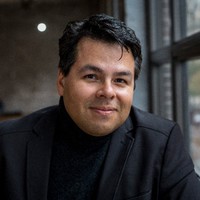 Several years of international multilateral and bilateral experience with an array of humanitarian, development, and diplomatic institutions ranging from the World Bank, UN agencies, NATO and the Canadian foreign service. This is complemented by several languages with various degrees of fluency and a high degree of global mobility and adaptability.
Several years of international multilateral and bilateral experience with an array of humanitarian, development, and diplomatic institutions ranging from the World Bank, UN agencies, NATO and the Canadian foreign service. This is complemented by several languages with various degrees of fluency and a high degree of global mobility and adaptability.
Delivered strategic and operational policy analysis and advice on the implementation of diplomatic, humanitarian and development initiatives, both in multilateral and bilateral contexts. Diverse and reliable set of skills in crisis management situations.
Conceived and managed humanitarian, civil society support, media development, post-conflict institutional and socio-economic reconstruction projects in challenging development contexts on behalf of bilateral and multilateral agencies.
Research fellow and lecturer for master degree’s level courses on humanitarian, peace-building, peacekeeping issues, aid and post-conflict reconstruction.
Well established record in the development and implementation of capacity building strategies and programmes in a broad range of contexts, covering humanitarian, development, economic, trade issues, and peace building processes.
Pro-bono social entrepreneur and youth mentor. Most recent initiatives are the launching of a global youth leadership project with the Club of Madrid, and mentoring Canadian and US undergraduates.
HÉLÈNE BENVENISTE
Postdoctoral Fellow at the Salata Institute for Climate and Sustainability
@HeleneBenvenist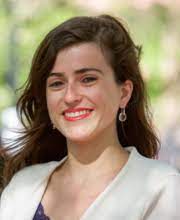 Hélène Benveniste uses interdisciplinary approaches to answer research questions directly relevant to climate change policy.
Hélène Benveniste uses interdisciplinary approaches to answer research questions directly relevant to climate change policy.
Hélène received her PhD in Science, Technology, and Environmental Policy from Princeton University’s School of Public and International Affairs and earned an MS in Science and Executive Engineering from Mines Paristech. Her research focuses on two broad topics: human migration and inequality in the context of climate change and global governance of environmental issues. In her work, she uses both quantitative methods drawn from environmental studies, economics, and demography, and qualitative methods grounded in political science.
As an Environmental Fellow, Hélène is continuing to explore topics of mobility in the context of climate change, with the aim to map most relevant policy responses to climate-related migration. She is pursuing this work with Professor Joseph Aldy at the Harvard Kennedy School and with Professor Peter Huybers at the Department of Earth and Planetary Sciences.
MICHAEL HISCOX, PHD '97
Clarence Dillon Professor of International Affairs, FAS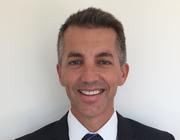 Michael J. Hiscox is the Clarence Dillon Professor of International Affairs in the Department of Government , Harvard University. At Harvard he is the Founding Director of the Sustainability, Transparency, Accountability Research (STAR) Lab and a faculty member of the Behavioral Insights Group at Harvard’s Center for Public Leadership. He is also a faculty associate at the Institute for Quantitative Social Science, the Weatherhead Center for International Affairs, and the Harvard University Center for the Environment.
Michael J. Hiscox is the Clarence Dillon Professor of International Affairs in the Department of Government , Harvard University. At Harvard he is the Founding Director of the Sustainability, Transparency, Accountability Research (STAR) Lab and a faculty member of the Behavioral Insights Group at Harvard’s Center for Public Leadership. He is also a faculty associate at the Institute for Quantitative Social Science, the Weatherhead Center for International Affairs, and the Harvard University Center for the Environment.
While on leave from Harvard between 2015 and 2017, Professor Hiscox was the founding Director of the Behavioral Economics Team (BETA) in the Department of the Prime Minister and Cabinet, Australian Government. He continues to serve as an adviser to BETA.
Professor Hiscox received his Bachelor of Economics (First Class) from the University of Sydney and his PhD from Harvard University. His research has examined international trade and immigration policy, economic development, global supply chains, corporate responsibility and sustainability initiatives, and policies addressing economic, social, and public health issues in several countries. He has written two books and numerous articles for leading scholarly journals. Working with governments, non-profit organizations, and corporations, he has designed and implemented randomized trials to evaluate a wide range of government policies, company initiatives, and programs administered by non-profit organizations in the United States, Australia, Singapore, Indonesia, Ghana, and Cote d’Ivoire.
JAMES ENGELL, AB ’73, PhD ’78
Gurney Professor of English Literature,
Professor of Comparative Literature
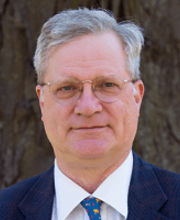 James Engell is Gurney Professor of English and Professor of Comparative Literature, also a member of the Committee on the Study of Religion, and a faculty associate of the Harvard University Center for the Environment. He has also directed dissertations in American Studies, as well as Romance Languages & Literatures (French).
James Engell is Gurney Professor of English and Professor of Comparative Literature, also a member of the Committee on the Study of Religion, and a faculty associate of the Harvard University Center for the Environment. He has also directed dissertations in American Studies, as well as Romance Languages & Literatures (French).
Education: B.A. 1973, Ph.D. 1978 Harvard
Interests: Romantic, Eighteenth-Century, and Restoration British Literature; Comparative Romanticism; Criticism and Critical Theory; Rhetoric; Environmental Studies; History and Economics of Higher Education
Selected Works: The Call of Classical Literature in the Romantic Age (2017, ed. with K. P. Van Anglen) and contributor, "The Other Classic: Hebrew Shapes British and American Literature and Culture." William Wordsworth's Prelude (1805), edited from the manuscripts and fully illustrated in color (2016, ed. with Michael D. Raymond). Environment: An Interdisciplinary Anthology (2008, ed. with Adelson, Ranalli, and Van Anglen). Saving Higher Education in the Age of Money (2005, with Anthony Dangerfield). The Committed Word: Literature and Public Values (1999). Coleridge: The Early Family Letters (1994, ed.). Forming the Critical Mind (1989). Johnson and His Age (1984, ed. and contributor). Biographia Literaria for the Collected Coleridge (1983, ed. with W. Jackson Bate). The Creative Imagination: Enlightenment to Romanticism (1981).
ERUM SATTAR, LLM ’10, SJD ’17
Former Program Director and Lecturer,
Sustainable Water Management Program (SWM),
Tufts Institute of the Environment
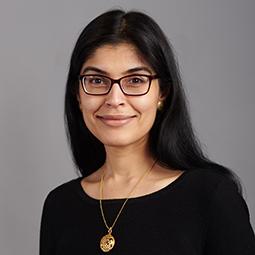 Erum K. Sattar received her Doctorate in Juridical Sciences (S.J.D.) from Harvard University where her dissertation committee consisted of Professors Mark Tushnet, James Salzman and Amartya Sen. The late Professor John Briscoe was also a member of her committee. Her doctoral research spanning law and policy focused on issues of water federalism and trans-boundary water sharing in the Indus River Basin.
Erum K. Sattar received her Doctorate in Juridical Sciences (S.J.D.) from Harvard University where her dissertation committee consisted of Professors Mark Tushnet, James Salzman and Amartya Sen. The late Professor John Briscoe was also a member of her committee. Her doctoral research spanning law and policy focused on issues of water federalism and trans-boundary water sharing in the Indus River Basin.
At the Friedman School and the Tufts Institute of the Environment, Dr. Sattar lead and taught in the multidisciplinary Sustainable Water Management Program (SWM) that draws together colleagues and disciplines from across Tufts University. Her current research is focused on the impact of climate change as it disrupts water availability and the legal and institutional structures that societies need to design to adapt to growing environmental stresses ranging across floods, a warming climate, and long-term droughts. Her work is centered on studying water both as a physical as well as a historically constructed shared and governed resource that has significant implications for economic development and political economy, food security, political systems and migration patterns, and the stability of ecosystems.
KIMBALL CHEN, AB'73, MBA '78
Chairman, The Global LPG Partnership Mr. Chen has served as the Chairman of GLPGP since its founding in 2012. He is an industry statesman in the LNG and LPG sectors, with more than 40 years’ experience as a CEO, investor, senior advisor to governments and international organizations, and former President of the World LPG Association (the global voice of the LPG industry). Mr. Chen received his B.A. (Magna Cum Laude) from Harvard University in 1973 and his MBA from Harvard University in 1978.
Mr. Chen has served as the Chairman of GLPGP since its founding in 2012. He is an industry statesman in the LNG and LPG sectors, with more than 40 years’ experience as a CEO, investor, senior advisor to governments and international organizations, and former President of the World LPG Association (the global voice of the LPG industry). Mr. Chen received his B.A. (Magna Cum Laude) from Harvard University in 1973 and his MBA from Harvard University in 1978.
PETER TUFANO, AB ’79, MBA ’84, PhD ’89
Baker Foundation Professor, HBS
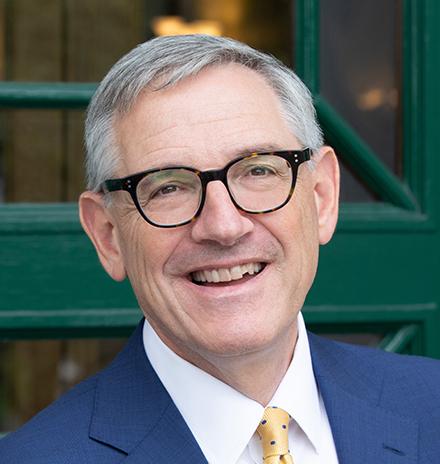 Peter Tufano is Baker Foundation Professor at Harvard Business School and Senior Advisor to the newly created Harvard Salata Institute for Climate and Sustainability. From 2011 to 2021, he served as the Peter Moores Dean at Saïd Business School at the University of Oxford. From 1989 to 2011, he was a Professor at HBS, where he oversaw the school’s tenure and promotion processes, campus planning, and university relations and was the founding co-chair of the Harvard i-lab. His research and course development has spanned financial innovation, financial engineering, and household finance. His current work focuses on business solutions to climate change.
Peter Tufano is Baker Foundation Professor at Harvard Business School and Senior Advisor to the newly created Harvard Salata Institute for Climate and Sustainability. From 2011 to 2021, he served as the Peter Moores Dean at Saïd Business School at the University of Oxford. From 1989 to 2011, he was a Professor at HBS, where he oversaw the school’s tenure and promotion processes, campus planning, and university relations and was the founding co-chair of the Harvard i-lab. His research and course development has spanned financial innovation, financial engineering, and household finance. His current work focuses on business solutions to climate change.


